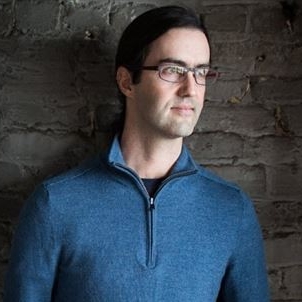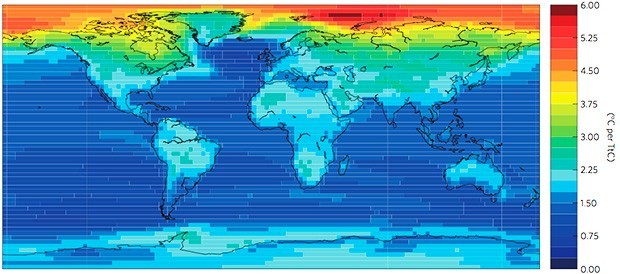Donny Seto (CSIM Lab Manager, and DACCS Research Associate)
My research focuses on analyzing the carbon footprint of cities, sustainable urban development, and impact assessments, with an emphasis on GIS-based analyses of climate change and mitigation pathways. I aim to develop strategies that promote urban sustainability and resilience in the face of climate challenges. At Data Analytics for Canadian Climate Services (DACCS), I coordinate with university researchers to identify their data needs, facilitating access to climate data and tools that support informed decision-making on climate adaptation and mitigation.
Camilo Alejo Monroy (Post Doc)
I am a Postdoctoral fellow interested in the interplay of land tenure, financial incentives, and local values to achieve climate and biodiversity outcomes from a geospatial perspective. Currently, I coordinate the NSERC Alliance project “Equitable Futures for Nature-based Solutions” at Sustainability in the Digital Age and Future Earth Canada Hub. This project, led by Prof. Damon Matthews, is twofold: we aim to (1) understand Canada’s landscape of Nature-based Solutions, and (2) leverage Machine Learning tools to monitor current and prioritize future conservation and restoration actions. Our research aims to catalyze science-based decision-making to align climate and biodiversity targets from an equitable perspective.
Rebecca Evans (Post Doc)
I am a Mitacs Elevate Postdoctoral Fellow at Concordia University in Montreal, QC. I got her Master's degree in Earth Sciences at the University of Oxford in 2016, then in 2022 graduated from my PhD in Meteorology and Physical Oceanography at the University of Miami's Rosenstiel School of Marine, Atmospheric, and Earth Sciences. Currently, my research focuses on agriculture as a nature-based solution to climate change. This research involves simulations of carbon sequestration into agricultural soil at plausible rates, performed using the University of Victoria Earth System Climate Model. The goal is to study the climate benefits of nature-based carbon removal and how they depend on the existing state of the climate system.
Etienne Guertin (Ph.D Student)
My interest is in improving the understanding of the interrelationship between wildfires and climate change at a global scale. With the University of Victoria Earth System Climate Model (UVic ESCM), I modelled wildfires in the different climate and vegetation regions. My greatest interest is on knowing whether or not global fire regime will change in the next hundreds of years due to climate change and if that in return will affect climate. I hope my research will increase the scientific understanding of the mechanisms that lead to wildfires and help policy makers and forest managers adapt in advance to the changing global fire regime.
Mitchell Dickau (Ph.D Student)
My research focuses on using the UVic-ESCM and CMIP6 climate models to investigate temperature overshoot, particularly the irreversibility of climate outcomes after surpassing and subsequently returning to a temperature target through negative emissions. I have also published work on topics including remaining carbon budgets, the impact of climate change on outdoor ice skating in Canada, the effectiveness of nature-based solutions, climate messaging by U.S. politicians, and a survey of IPCC contributors. I am also affiliated with the Canadian Centre for Climate Services in ECCC as a student researcher working on climate adaptation and fire weather.
Olivier Chalifour (Ph.D. Student)
Driven by curiosity, I seeks to push the boundaries of science through his research on artificial intelligence, wildfires, and Earth system climate models. Building on the expertise gained during his Masters in Atmospheric Physics, where I worked with high-resolution models, my PhD research continues to deepen and expand his understanding of model mechanics. My current project focuses on assessing the effectiveness of nature-based solutions (NBS) and their vulnerability to changing wildfire regimes under future climate scenarios. Using the University of Victoria Earth System Climate Model (UVic ESCM), I aims to improve the representation of wildfires by incorporating artificial intelligence to enhance physics-based processes in the model.
Miles Barette Duckworth (M.Sc. Student)
My research investigates the potential for carbon sequestration through chemical weathering of gravel on gravel roads. With our changing climate, negative emissions strategies need to be explored, as reduction in atmospheric carbon dioxide
levels is necessary to avoid the major impacts of climate change. As gravel roads represent an unintentional form of enhanced weathering, my research seeks to investigate whether gravel roads contribute meaningfully to the reduction of atmospheric carbon dioxide levels over short timescales. My other areas of interest are; food politics, freshwater fish biology, river geomorphology, and web-based programming. For more about me, please visit my linkedin profile.
Meagan Oxley (M.Sc. Student)
I am exploring the language used in fossil fuel lobbying efforts and their impact on climate actions and policy. As a Climate change researcher and activist with a focus on policy, just energy transition, decarbonized electrification, international law, and human rights, I am always looking to expand my funding opportunities for my Master's research into this area of inquiry.
Anthony Garoufalis-Auger (M.Sc. Student)
I am exploring climate mitigation potential of dietary shifts in Canada. My work has focused on undeserved areas of climate policy, identifying and thinking up solutions, and organizing people and organizations into advocacy coalitions. I have strong analytical and research abilities, leadership qualities, interpersonal skills, and useful natural reflex to be highly critical of everything.



